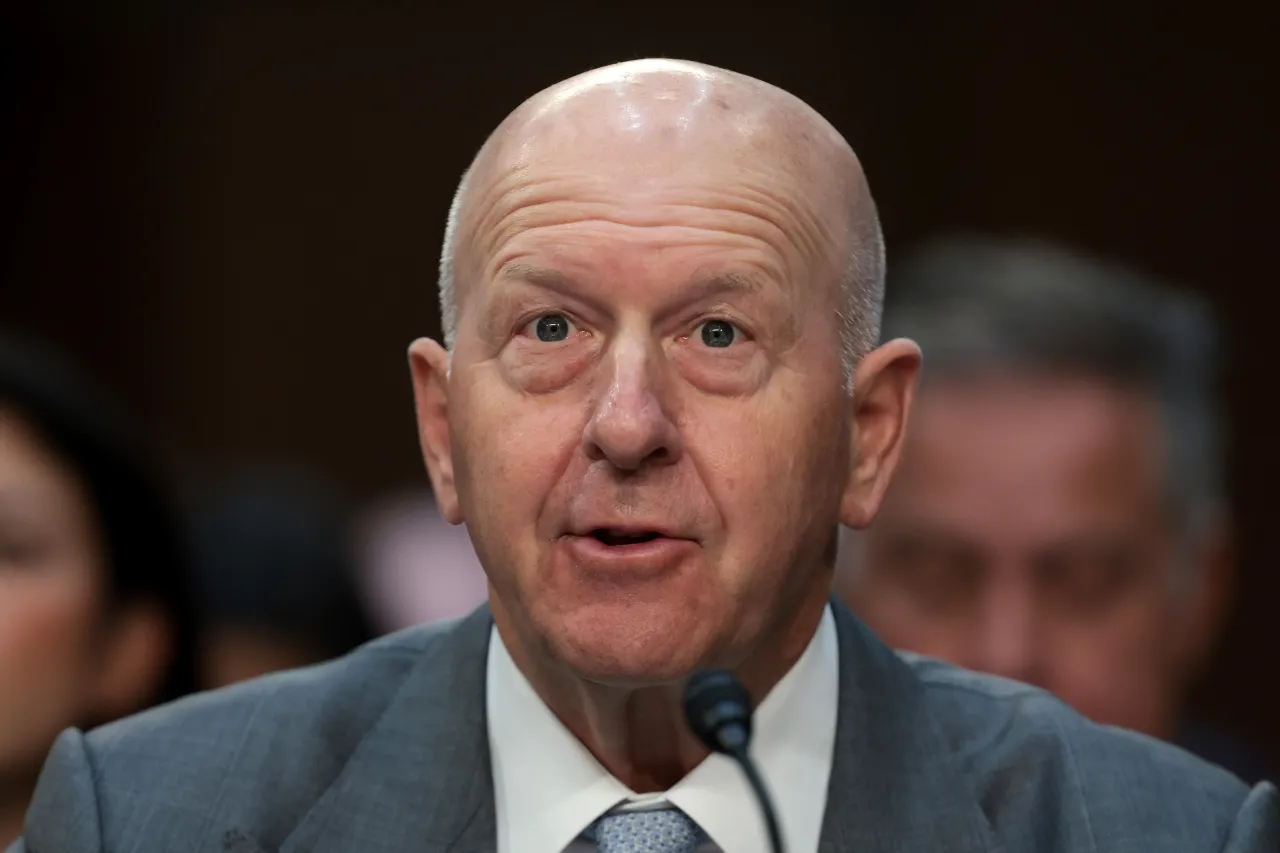Advertisement|Remove ads.
Will Fed Cut Rates Next Week? What Goldman Sachs CEO David Solomon Predicts For September Meeting And Rest Of 2025

Goldman Sachs CEO David Solomon, a prominent voice on Wall Street, on Wednesday weighed in on the two factors driving the market higher: interest rates and artificial intelligence (AI) technology.
While speaking to CNBC on the sidelines of the Goldman Sachs Communacopia Conference, Solomon said there is no question that there is a little bit of softening in the labor market. “I’m pretty confident that we’ll have a 25 basis point cut,” he said, adding that a bigger 50 basis point cut is not probably in the cards.
“I would expect a 25 basis point cut, and I think we could see one or two other cuts, depending on how economic conditions play out from here,” Solomon said. “But there is no question we are going to see a slight change in the policy rate as we move into the fall, and I think it will be really data-dependent on how things evolve as we go through the rest of the Fall.”
The comments come ahead of the Sept. 16-17 Federal Open Market Committee (FOMC) meeting in which the central bank is widely expected to cut rates. The monthly job growth has been anemic since May, and the strength reported for the first three months of the year has been called into question following the sharp downward revisions announced by the Bureau of Labor Statistics earlier this week.
The market has had a record run amid hopes for rate cuts and the buoyancy seen in the performances of companies with exposure to AI technology.
The SPDR S&P 500 ETF (SPY) and the Invesco QQQ Trust (QQQ), exchange-traded funds (ETF) that track the S&P 500 Index and the Nasdaq 100 Index, have gained 12% and 14%, respectively, for the year.
Stocktwits users’ sentiment toward the SPY ETF waned to ‘neutral’ (49/100) by late Wednesday from ‘bullish’ a day ago, while they remained ‘bearish’ (24/100) on the QQQ ETF. The message volume on the SPY stream held ‘high,’ while that on the QQQ stream was ‘normal.’
On tariffs, Solomon said they are having an impact on growth, although opining that it was hard to quantify it. Previously, Trump had clashed with the Goldman CEO over the firm’s stance on tariffs. He had slammed the firm for making dire predictions about the duties, and even asked it to replace its economist.
Solomon said the excitement seen around AI is justified by the impact it can have over time. “Whenever you have a new technology……there tends to be some excessive exuberance about how quickly the change can be implemented in the enterprise, how quickly the productivity gains can come,” he said, adding that “my guess is this will be no different.”
Solomon also weighed in on the durability of the companies spawned by the technology. “There are some amazing companies that have been formed and grow[ing]. There will be lots of companies that are formed that don't make it in the long run.” He sees this as part of the natural cycle.
At the same time, the Goldman top brass did not rule out irrational exuberance. “I think you just need to have the lens that whenever there's a new technology, there's going to be some irrational exuberance,” he said.
For updates and corrections, email newsroom[at]stocktwits[dot]com.
Read Next: Why Quantum Corp. Stock Plunged In Today’s After-Hours













/filters:format(webp)https://news.stocktwits-cdn.com/large_Getty_Images_2244602965_jpg_cba2d012d5.webp)
/filters:format(webp)https://st-everywhere-cms-prod.s3.us-east-1.amazonaws.com/IMG_9209_1_d9c1acde92.jpeg)
/filters:format(webp)https://news.stocktwits-cdn.com/large_novaxovid_novavax_resized_jpg_3a4b0527ae.webp)
/filters:format(webp)https://news.stocktwits-cdn.com/IMG_8805_JPG_6768aaedc3.webp)
/filters:format(webp)https://news.stocktwits-cdn.com/large_ripple_OG_jpg_e47a5108f1.webp)
/filters:format(webp)https://st-everywhere-cms-prod.s3.us-east-1.amazonaws.com/Prabhjote_DP_67623a9828.jpg)
/filters:format(webp)https://news.stocktwits-cdn.com/large_Getty_Images_1321753430_jpg_3be244e72e.webp)
/filters:format(webp)https://news.stocktwits-cdn.com/IMG_4530_jpeg_a09abb56e6.webp)
/filters:format(webp)https://news.stocktwits-cdn.com/large_Getty_Images_2261740807_jpg_19c077b8cd.webp)
/filters:format(webp)https://news.stocktwits-cdn.com/large_uniqure_jpg_33b6552285.webp)